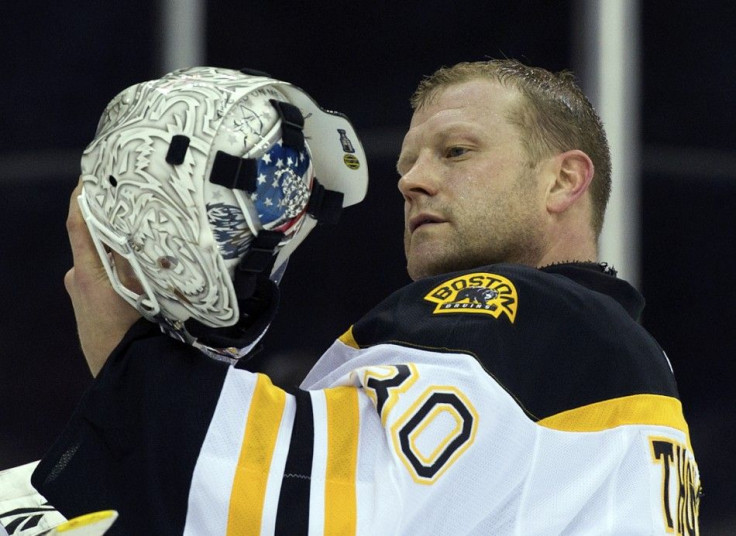Tim Thomas Traded: Boston Bruins Deal Suspended Goalie To New York Islanders For Conditional Draft Pick

Just one season removed from leading the Boston Bruins to the Stanley Cup championship, goaltender Tim Thomas has been traded to the New York Islanders for a conditional draft pick.
At the end of last season, Thomas informed Bruins general manager Peter Chiarelli that he would be taking a year off from hockey, despite having one year remaining in his four-year contract. So far, Thomas has followed through on that promise.
ESPN’s Katie Strang reported that the Islanders’ decision to acquire the goalie was purely due to the salary cap, bringing New York to the cap floor while Bruins can now clear the $5 million hit from their books. Dealing Thomas allows Chiarelli to pursue another piece to a team that’s expected to contend for the championship this year.
“He was a great, significant part of our Stanley Cup-winning team,” Chiarelli said. “He had a very good career here, and I can’t say enough about his contributions to the team. The journey he took us on in the Stanley Cup was amazing, and I was happy to be along for the ride.”
The Bruins will only receive a second-round draft pick if Thomas plays this season, either for the Islanders or another team if he’s dealt again. Thomas’ agent told ESPN his client only found out about the trade shortly before the media and his playing status remains “status quo.”
Thomas, who won the Conn Smythe Trophy as most valuable player in the playoffs during the Bruins’ run to the Cup in 2011, had been called a distraction in the locker room for his outspoken political beliefs, which included boycotting the Bruins’ championship White House visit because of his opposition to President Barack Obama.
The trade has been roundly criticized by sports writers as a clear violation of the NHL’s new salary cap regulations. But Deputy Commissioner Bill Daly defended the deal, telling reporters it’s not one of the salary cap maneuvers the league tried to eliminate during the lockout that cost half the NHL season.
"As long as a player has an active contract that he has the right to return to, absent unusual circumstances, our view is that he remains a 'hockey asset' that a club has a right to trade or acquire," Daly said.
© Copyright IBTimes 2025. All rights reserved.





















